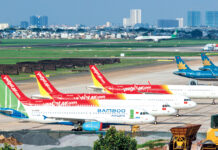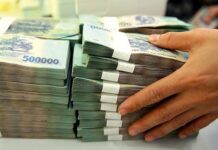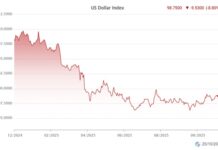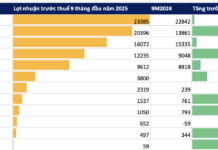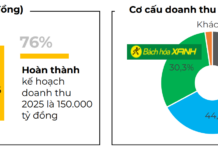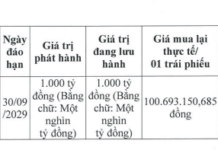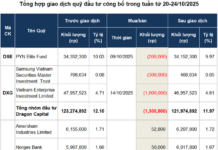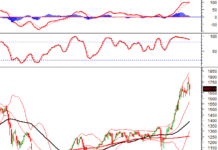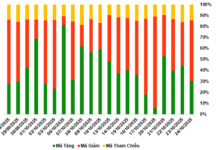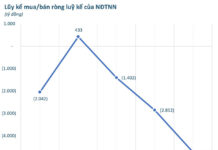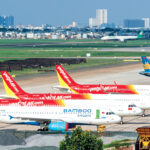The Stubborn Horse
Mr. Nguyen Ngoc Luan, the founder of the Meet More brand of agricultural coffee (Hoc Mon District, Ho Chi Minh City), said that his company has been greatly affected by the daily increase in the price of fresh coffee beans. The price was 86,000 VND/kg a few days ago, and the next day it rose to 91,000 VND/kg…
Currently, the price is 95,000 VND/kg. “On this day last year, the price of coffee was only 41,000 VND/kg, now it has increased to nearly 100,000 VND/kg. The price of coffee is like a stubborn horse, and our company can’t keep up,” Mr. Luan said.
According to Mr. Luan, since mid-June 2023, coffee prices have shown signs of increasing from 40,000 – 45,000 VND/kg, then increased to 50,000 VND/kg. Each price change has lasted for several months. However, after the Lunar New Year, the price increased rapidly and unusually high. Although the price is high, farmers are not benefiting because they do not have coffee to sell. They sell immediately after harvesting, instead of storing and waiting for the price to increase.
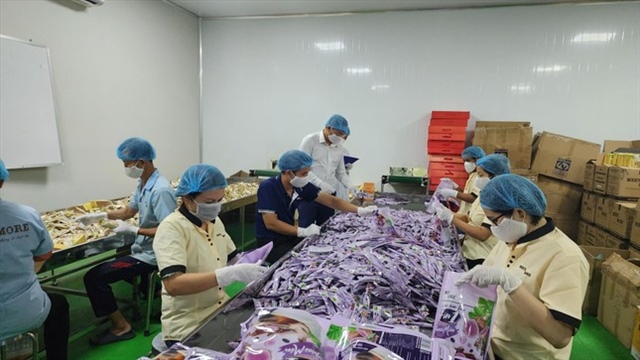
A representative from Meet More said that if the price of coffee continues to rise, the company can only survive until June. Photo: U.P. |
Mr. Luan said that when the cost of raw materials increases, Meet More and other coffee producers and processors are greatly affected by the pre-existing export orders.
Normally, the time from contract signing to product delivery is about 7 months. The rapid and sudden increase in price makes it difficult for companies to stockpile raw materials, even if they do, it is not a significant amount. Mr. Luan said that there are two reasons why companies cannot increase prices with their partners. The first reason is that the USD exchange rate is going up, and logistics transportation costs are also increasing. If the price of goods increases as well, it will likely result in no sales. Therefore, companies have to cut all profits, and even compensate for losses for large pre-existing orders.
“We can only buy a small amount of raw materials to fulfill orders. From the beginning of the year until now, we have had many foreign partners come to buy our products, but we have declined their offers because accepting more will result in more losses, unless the partners agree to increase the price,” Mr. Luan said. According to him, the company can only survive until around June.
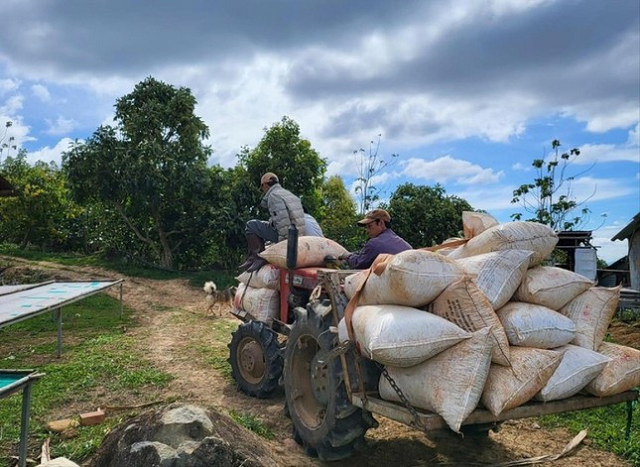
Real Bean Coffee Company manages by timing contracts. Photo: NVCC
|
According to Mr. Do Ha Nam, Chairman of the Intimex Group’s Board of Directors, the price of coffee has doubled compared to the same period last year, and this is the desired price for farmers. According to Mr. Nam, the reason for the high increase in coffee prices is the global supply shortage, and Vietnam is essentially alone in the marketplace.
In addition, the EU’s regulation that coffee exported to their market must meet forest destruction prevention requirements (EUDR) has also affected the current price of coffee. Meanwhile, many countries have not yet prepared the necessary procedures to meet these regulations, while Vietnam has already met them, so customers choose Vietnamese coffee.
Pricing Timing
Ms. Van Thi Loan, Director of Real Bean Coffee Co., Ltd. (Thu Duc District, Ho Chi Minh City), said that currently the company only exports 2 – 3 containers of coffee per month on average, a 50% decrease compared to previous periods. The high price of coffee beans and the inadequate supply are the difficulties the company is facing. Ms. Loan’s company manages by not entering long-term contracts with foreign partners, but instead determines the price based on market conditions. At the same time, she is willing to invest in order to maintain her customer base.
With the current high price of coffee, Ms. Loan believes that this is not the true price. Agricultural product prices rise and fall, and when they reach their peak, they will have to decrease. Around April or May, when the Brazilian and Indonesian markets return, the market is likely to adjust.
Many agricultural export companies believe that at the current historically high price level, they are unable to purchase goods, and some suppliers are not delivering due to the fluctuating prices.
For importers, due to the difficult market situation, they cannot increase prices for consumers to match the new price levels. The market has not accepted or caught up with the price changes, so both exporters and importers are facing risks.
According to Mr. Nguyen Van Muoi, Head of the Southern Division of the Vietnam Farmers Association, the coffee shortage is not only happening in Vietnam, but globally, which has driven prices up.
In the Central Highlands region, coffee buyers go to farms and accept purchasing even the types of coffee that were previously rejected. The output has decreased significantly.
“I believe that at this time, each company must have its own plan. We need to accept waiting and overcome the current difficult period,” Mr. Muoi said.
Café Owners Worried About “Bitter” Coffee
Many café owners are restless as the price of this commodity skyrockets. Ms. Nguyen Thi Ha, the owner of Ha Minh Café (Nam Ky Khoi Nghia Street, District 1, Ho Chi Minh City), said that the coffee supplier has already announced two price increases this year, each time ranging from 5,000 – 10,000 VND/kg (depending on the type of coffee).
“After the increase, the price of coffee ranges from 135,000 – 155,000 VND/kg. Although the price has increased, we cannot increase the price per cup of coffee because the number of customers has decreased significantly,” Ms. Ha said.
Mobile coffee businesses are selling their products for as little as 10,000 – 15,000 VND per cup. Mr. Tran Van Binh (Binh Thanh District, Ho Chi Minh City) is distressed as the price has increased multiple times in the past three months.
“I am trying to keep my prices in order to retain customers, but if the cost of raw materials continues to increase, I will be forced to increase the price by about 2,000 – 3,000 VND per cup,” Mr. Binh said.
The price of pure ground coffee for brewing has now risen to 200,000 – 250,000 VND/kg, with some places quoting up to 300,000 VND/kg. Mr. Nguyen Van Thanh (Tan Phu District, Ho Chi Minh City), who specializes in supplying packaged coffee, said he has reached out to many farmers in Gia Lai, Dak Lak, etc., but they do not have any raw materials to sell.
|
In order to develop sustainably, companies need to focus on processing and increasing value, producing within a supply chain. According to Mr. Phan Minh Thong, Chairman of the Phuc Sinh Joint Stock Company’s Board of Directors, the coffee industry needs to continue to promote processing. “We need to recognize that we can no longer do business purely based on trade. We need to build factories, invest in deep processing, and always focus on technology and further processing. This is the key point and advantage that can help Vietnam export agricultural products at higher values,” Mr. Thong commented. |
Uyen Phuong

